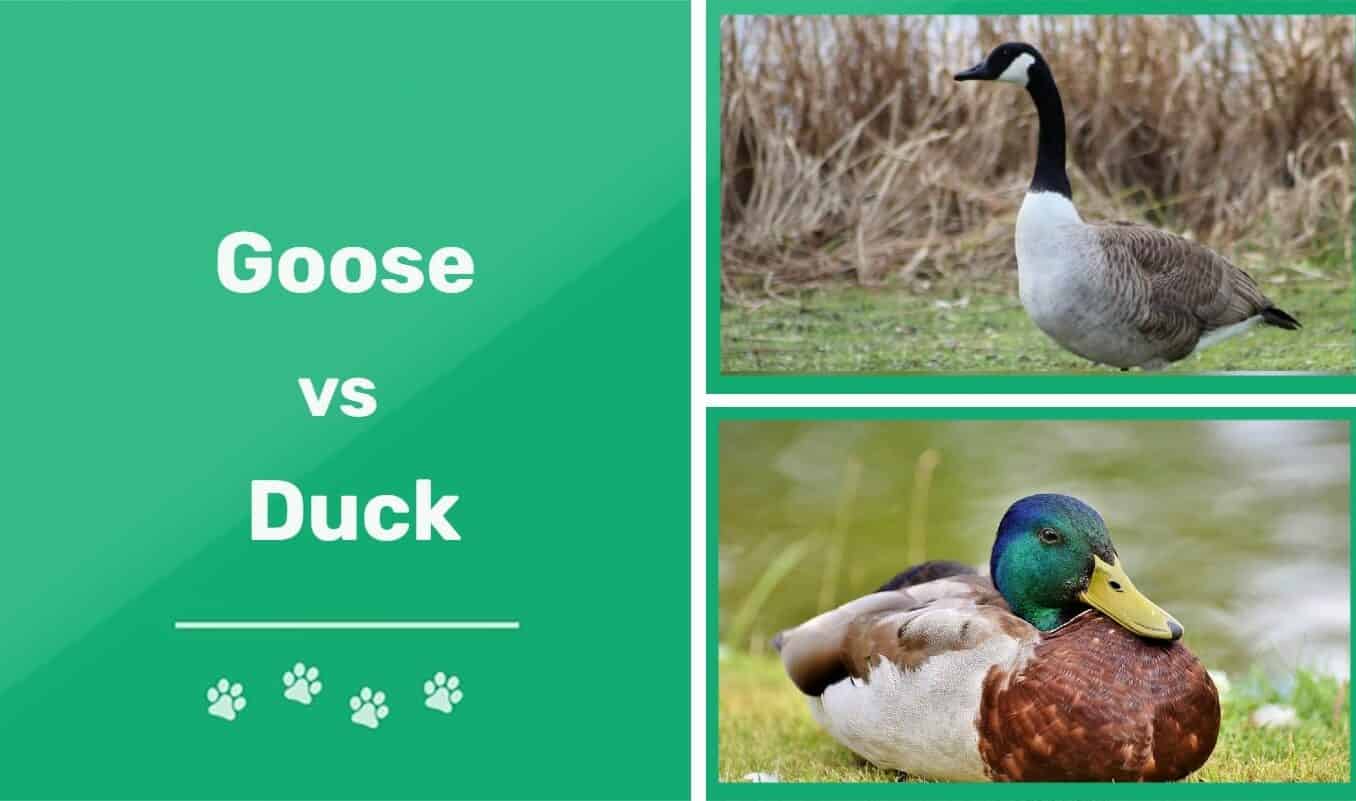Ducks and geese are similar in appearance, and many people mistake one for the other. While there are a few key similarities, there are also distinct differences between these two bird types. Ducks and geese are both waterfowl and both a part of the family Anatidae. They both have webbed feet and broad, flat beaks and favor living in small flocks. That said, while all geese species are migratory birds, only some duck species are, and geese are typically much larger than ducks.
Let’s look at the similarities between these two waterfowl and the key differences.

Visual Differences
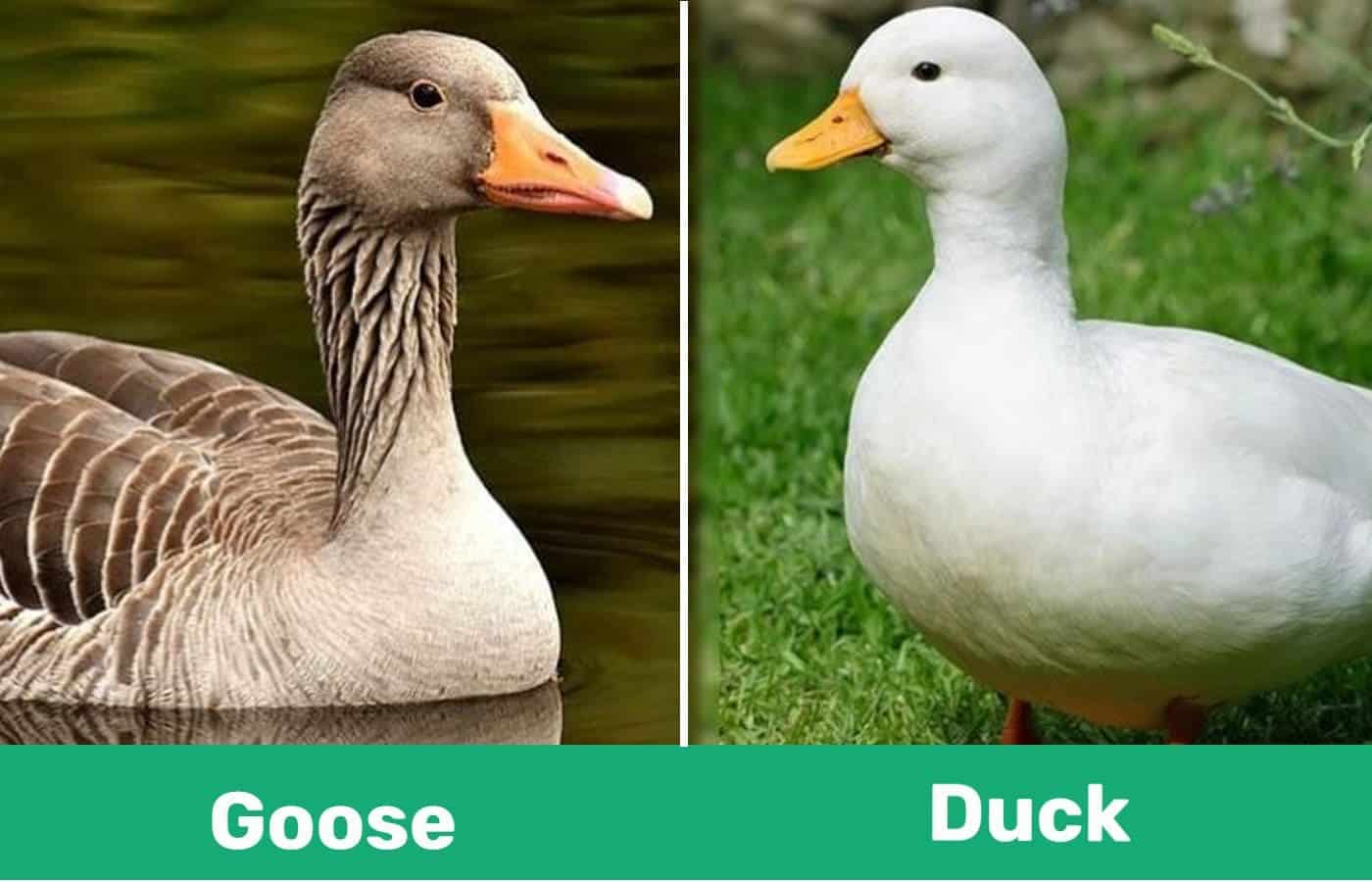
At a Glance
- Origin: Egypt
- Size: 30–40 inches long, 18–22 pounds
- Lifespan: 10–24 years
- Domesticated?: Estimated 3,000 years ago in Egypt
- Origin: China
- Size: 20–26 inches long, 1.5–3.5 pounds
- Lifespan: 5–10 years
- Domesticated?: Estimated 2,200 years ago in Southeast Asia

Goose Overview
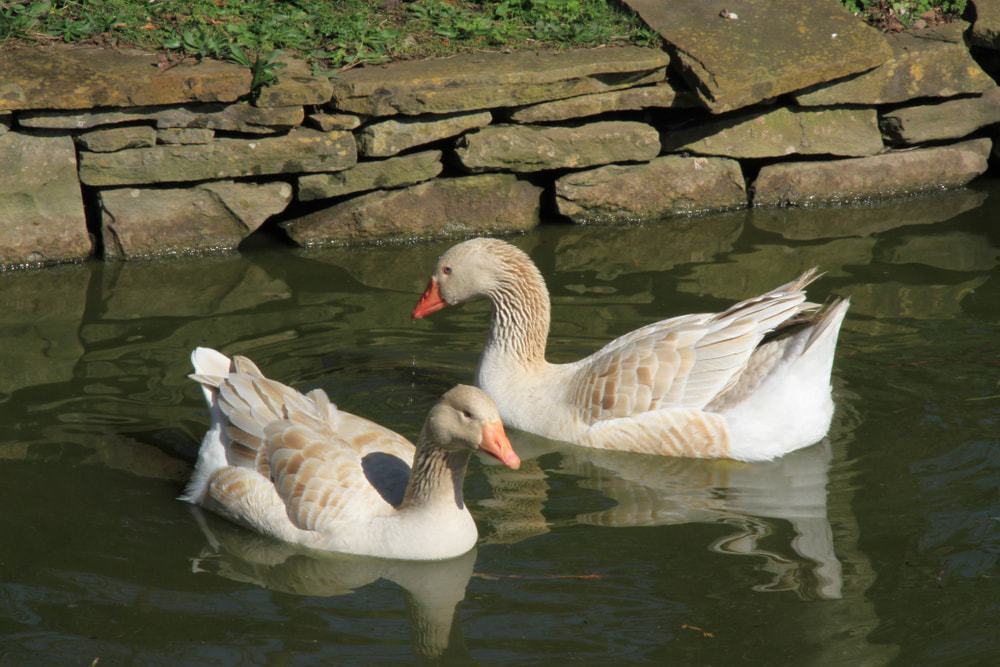
Characteristics & Appearance
Geese belong to the family Anatidae, which comprises the genera Anser, which are grey and white geese, and Branta, which are black geese. Within these groups, there are almost 100 different geese species, including:
- Canada goose
- Swan goose
- Greylag goose
- Brant goose
- Cackling goose
- Greater white-fronted goose
Geese are large birds, smaller than swans but much larger than ducks, with characteristic long necks and flattened bills. They are typically grey, white, or black in color, and some have wingspans up to 6 feet!
Geese live in various habitats, though they always tend to live close to water, including wetlands, marshes, streams, and lakes, and they can be found on every continent except Antarctica. All geese, domesticated or wild, are highly social creatures, and goose pairs typically mate for life. Except during breeding season, geese tend to live in large flocks, where they spend most of their time foraging for food.
One of the biggest differences between geese and ducks is geese’s tendency for aggression. During the breeding season, males can be highly territorial and aggressive in the protection of their young. Geese are large, somewhat clumsy birds, and this is largely why they have this driven, territorial instinct.
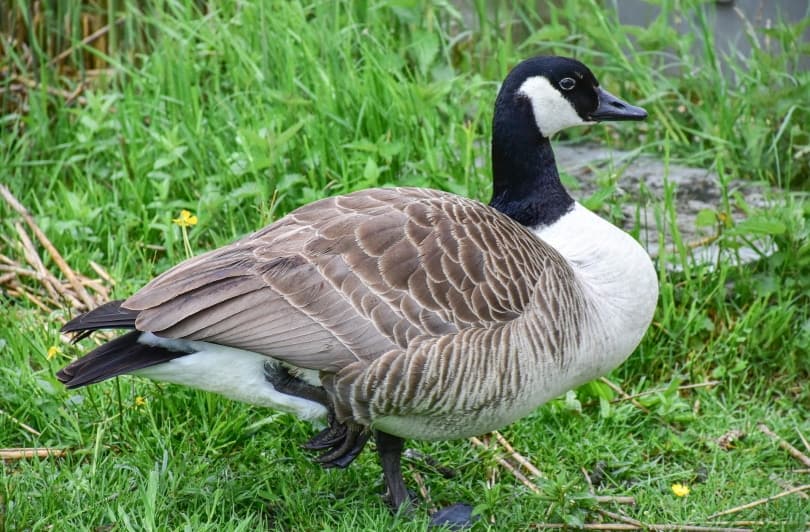
Uses
Geese are multipurpose animals and useful birds to have around on small farms. They also make beautiful show birds. They are great foragers and can help keep your lawn trim and free from weeds. They are low-maintenance birds in general, certainly less so than ducks. Geese are notoriously loud and noisy birds, though, which does make them great guard animals because they’ll always alert you to any strange new sounds or visitors.
While geese are not great layers (they only produce around 60 eggs a year), their eggs are large, nutritious, and delicious, and most species of domestic geese produce tender, premium-quality meat.

Duck Overview
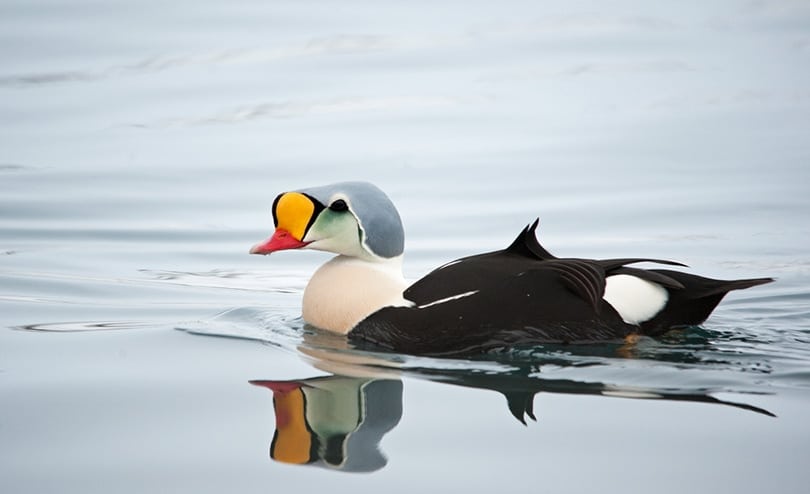
Characteristics & Appearance
Ducks are, like geese, a part of the family Anatidae but are the smallest member. There are many different duck species, but the most common in the United States include:
- Mallards
- Scaups
- Teals
- American Widgeon
Ducks are typically divided into several categories according to common characteristics. These include diving ducks, dabbling ducks, goldeneyes, and perching ducks, and there are various species within these categories.
A standard duck, no matter the species, has a characteristic rounded head, torpedo-shaped body, and a flattened, rounded bill. Most ducks also have long necks but still much shorter necks than swans or geese. Males are usually the most colorful, depending on the species, and females typically have dull brown feathers that make it easier for them to hide from predators.
Ducks tend to spend most of their time on the water and inhabit ponds, streams, rivers, and wetlands and can be found on every continent but Antarctica. Ducks are generally docile, social creatures and do not have the aggressive reputation of geese. They do best in small flocks and are known to become depressed if they live alone. While geese are known for pair-mating and bonding for life, ducks form seasonal bonds only, and new pair bonds are formed each season. Ducks, like geese, are omnivores and forage on grass, aquatic plants, insects, and even small crustaceans.
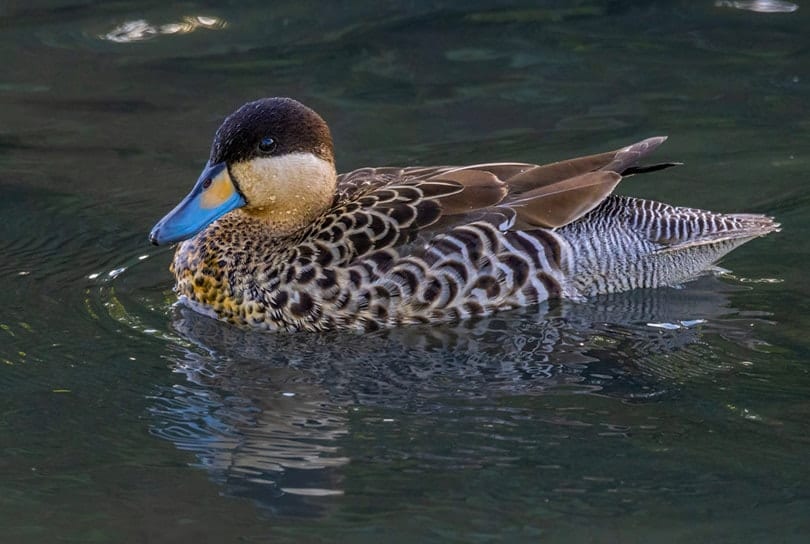
Uses
Ducks are highly useful animals that are used for meat, eggs, and feathers. Since ducks are expert foragers, they are great for keeping weeds at bay and are the ideal solution if you have a slug infestation—slugs are irresistible to ducks!
Besides their delicious meat, ducks are far more prolific layers than geese, and in captivity, they can lay an egg every day or two in the right conditions, making them ideal for small homesteads as an alternative to chickens.

What Are the Differences Between Geese and Ducks?
Geese are far larger than even the biggest duck species and have longer, more slender necks too. Geese can occasionally be found with colored feathers, but ducks are generally far more colorful than geese, especially males. Ducks have longer, wider bills than geese and are omnivores, while geese tend to be predominantly herbivorous—although some species do eat small fish and insects at times.
Geese form powerful pair bonds and mate for life, while ducks have short mating seasons and mate with a different partner every season. Geese also have a far longer lifespan than ducks, and most ducks have an average lifespan of 10 years, while geese can easily live up to 20 years in the right conditions. Lastly, most ducks do not migrate, while all species of geese migrate every year.

Which Breed Is Right for You?
If you’re looking for an animal that can provide you with abundant, nutritious eggs and healthy, tender meat, ducks are the best choice. Geese eggs are also nutritious and tasty, but they lay much less frequently than ducks.
If, however, you’re looking for a beautiful pet bird to have on your homestead, both ducks and geese are great choices. Geese are great alarm systems and will notify you of any strange animals or people. They are also hardier and longer-lived than ducks, so if you’re looking for a low-maintenance pet, geese will be the better option.
You may also want to read about:
- 8 Largest Duck Breeds (With Pictures)
- Male vs Female Canada Goose: What’re The Differences? (with Pictures)
Featured Image Credit: Top – Goose (Pixabay) | Bottom – Duck (Pixabay)
